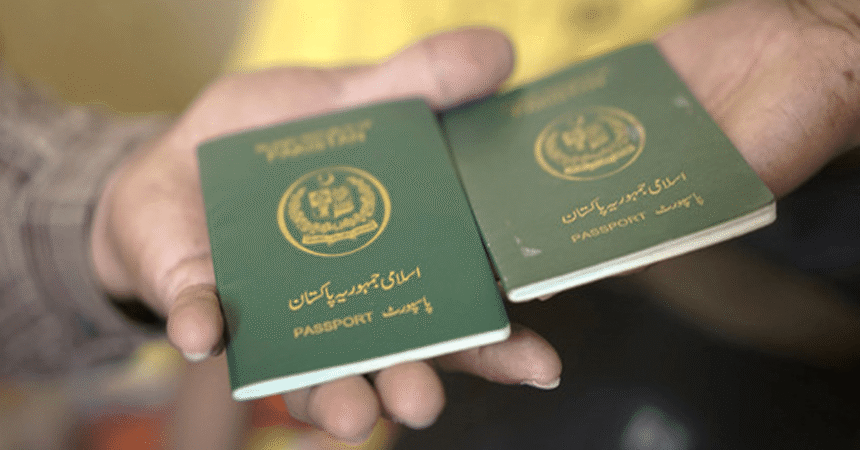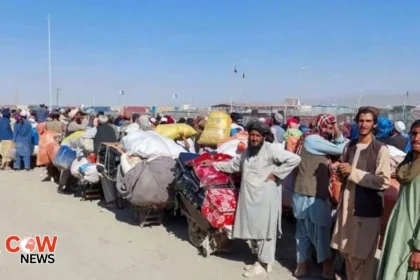In a significant operation, the Federal Investigation Agency (FIA) apprehended three Afghan women at Karachi Airport while they were attempting to travel to Germany using counterfeit visas. This incident has drawn attention to the ongoing issue of human trafficking and fraudulent immigration practices, particularly amid the current ban on Pakistani visit visas for Afghan citizens. The FIA’s crackdown on such illegal activities reflects the agency’s commitment to safeguarding the integrity of the country’s immigration system.
Details of the Incident
The arrests took place as the women were preparing to board a flight to Germany. The individuals were identified as Aziza Mohammadi, Mehria Rahmani, and Zahra Soltani. Each of the women entered Pakistan under dubious circumstances, raising red flags during the visa verification process.
Aziza Mohammadi had entered Pakistan on a medical visa, claiming she required treatment. She presented documents indicating that she was undergoing treatment at a hospital in Islamabad. However, upon further investigation, FIA officials discovered that this was her first visit to Pakistan, contradicting her claims of ongoing medical treatment.
Mehria Rahmani arrived on a business visa, reportedly traveling with her husband. However, when questioned by authorities, Rahmani disclosed that she was unmarried, casting doubt on the legitimacy of her visa. This inconsistency led investigators to believe that her visa was obtained under false pretenses.
Zahra Soltani claimed she was a nurse accompanying an Afghan patient for medical treatment. Yet, the FIA’s inquiry revealed that the alleged patient had never entered Pakistan. This revelation highlighted the fraudulent nature of her visa application and raised concerns about a larger network of human trafficking.
Context of Visa Fraud and Human Trafficking
The arrests of Mohammadi, Rahmani, and Soltani underscore a troubling trend in human trafficking and immigration fraud. With the ongoing ban on visit visas for Afghan citizens, many individuals are resorting to desperate measures to seek opportunities abroad, often falling victim to traffickers who exploit their vulnerabilities.
Human trafficking remains a pressing issue in the region, particularly affecting Afghan nationals who face numerous challenges, including political instability, economic hardship, and limited access to resources. Traffickers often prey on these individuals, offering false promises of employment and better living conditions in foreign countries.
In recent years, Pakistan has seen a rise in the number of Afghan nationals entering the country on fraudulent visas, only to attempt onward travel to Western nations. These individuals frequently rely on counterfeit documents, believing that they can escape their circumstances through illegal means. The FIA’s actions reflect an increased awareness of these issues and a commitment to combating them.
FIA’s Response and Legal Framework
Following the arrests, the FIA has registered a case against the three Afghan women under the Anti-Human Trafficking Circle. This legal framework is designed to address human trafficking offenses and provide mechanisms for prosecuting individuals involved in such activities. The FIA’s approach emphasizes the importance of protecting vulnerable populations while holding perpetrators accountable.
The Anti-Human Trafficking Circle operates under the auspices of the FIA, focusing on dismantling human trafficking networks and providing assistance to victims. The agency collaborates with various stakeholders, including international organizations, to combat trafficking effectively. This includes conducting awareness campaigns, enhancing border security measures, and providing training to law enforcement officials on identifying and addressing trafficking cases.
In light of the recent arrests, the FIA is expected to intensify its efforts to investigate the networks behind these fraudulent activities. The agency aims to uncover the extent of the trafficking operations and dismantle them, ensuring that individuals who exploit vulnerable populations face legal consequences.
Broader Implications for Afghan Nationals
The ongoing ban on visit visas for Afghan citizens has created a challenging environment for those seeking to travel for legitimate purposes. While the restrictions aim to curb illegal immigration and human trafficking, they also inadvertently increase the desperation among Afghan nationals seeking better opportunities abroad. This desperation can lead to individuals resorting to risky and illegal methods of travel, as seen in the case of Mohammadi, Rahmani, and Soltani.
The broader implications of these issues extend beyond individual cases. The situation highlights the need for comprehensive policies that address the root causes of human trafficking and illegal immigration. This includes providing support for Afghan nationals to ensure they have access to legitimate avenues for travel and employment, as well as addressing the socio-economic challenges that drive individuals to seek opportunities abroad.
Community Impact and Public Awareness
The community’s response to the arrests has been one of concern and reflection. Many residents express sympathy for the Afghan women while recognizing the broader implications of such fraudulent activities. There is an increasing awareness of the challenges faced by Afghan nationals and the dangers posed by human traffickers who exploit their vulnerabilities.
Public awareness campaigns play a crucial role in educating individuals about the risks of trafficking and the importance of seeking legal avenues for migration. Local organizations and NGOs have begun to collaborate with the FIA to promote awareness about the dangers of illegal immigration and the tactics employed by traffickers. These initiatives aim to empower individuals with knowledge about their rights and the resources available to them.
Government Initiatives and Regional Cooperation
The Pakistani government, in collaboration with international organizations, has implemented various initiatives to combat human trafficking. These efforts include training law enforcement officials, enhancing border security, and establishing hotlines for reporting suspected trafficking activities. Additionally, partnerships with NGOs and community organizations aim to provide support and resources to potential victims of trafficking.
Regional cooperation is essential in addressing human trafficking, as the issue transcends national borders. Pakistan, Afghanistan, and neighboring countries must work together to develop comprehensive strategies to combat trafficking networks effectively. This includes sharing intelligence, conducting joint operations, and creating legal frameworks that facilitate cooperation among law enforcement agencies.
The arrest of three Afghan women attempting to travel on fake visas highlights the ongoing challenges of human trafficking and immigration fraud in the region. The FIA’s proactive approach demonstrates a commitment to combating these issues, but it also underscores the need for broader systemic changes to address the root causes of these problems.
Increased public awareness, regional cooperation, and comprehensive government initiatives are vital in creating an environment where individuals can seek legitimate opportunities without falling prey to traffickers. The commitment to dismantling trafficking networks and providing support for vulnerable populations is crucial for ensuring the safety and well-being of Afghan nationals and others at risk.
#FIA #HumanTrafficking #FakeVisas #AfghanNationals #PakistanNews #ImmigrationFraud #TravelSafety #BorderSecurity







